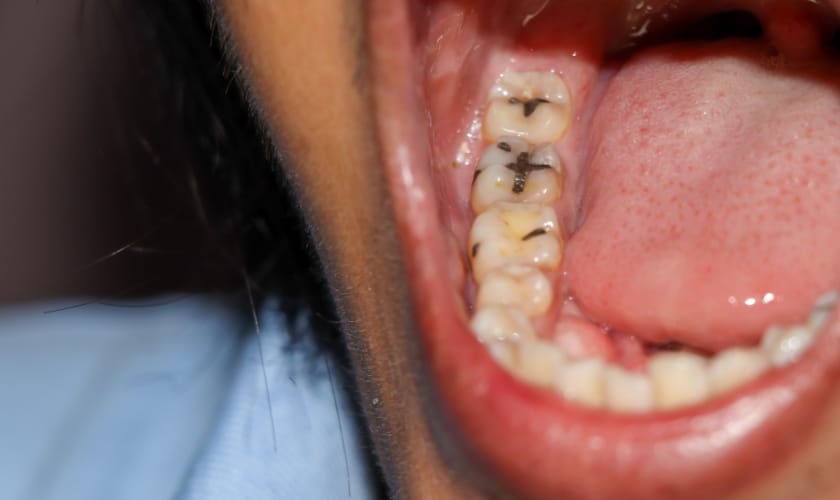Which Chewing Gum Is Safe for My Teeth? Rancho Cucamonga, CA

Chewing gum is a popular and convenient way to freshen your breath and reduce stress. However, not all chewing gums are created equal when it comes to dental health. Some gums can contribute to oral problems like cavities and enamel erosion, while others can actually benefit your teeth. Understanding the differences can help you make an informed choice about which gum to choose. This article explores the types of chewing gum that are safe for your teeth and the benefits they can offer.
Types of Chewing Gum and Their Impact on Dental Health
1. Sugar-Free Gum
Sugar-free gum is widely considered the best choice for dental health. It contains sugar substitutes like xylitol, sorbitol, or mannitol, which do not contribute to tooth decay. Here’s why sugar-free gum is beneficial:
- Reduces Plaque Formation: Chewing sugar-free gum stimulates saliva production. Increased saliva helps wash away food particles and neutralize acids produced by bacteria, reducing plaque buildup and the risk of cavities.
- Helps Remineralize Enamel: The saliva produced while chewing helps to remineralize and strengthen tooth enamel, which can reverse early signs of tooth decay.
- Prevents Dry Mouth: For those suffering from dry mouth, sugar-free gum can provide temporary relief by increasing saliva flow.
2. Gums with Xylitol
Xylitol is a sugar alcohol used as a sweetener in many sugar-free gums. It has additional benefits for dental health:
- Inhibits Bacterial Growth: Xylitol can reduce the growth of cavity-causing bacteria in the mouth, lowering the risk of tooth decay.
- Promotes Saliva Production: Like other sugar-free gums, xylitol gum stimulates saliva flow, which helps protect teeth and gums.
3. Gums with Fluoride
Some chewing gums are fortified with fluoride, which can offer additional dental benefits:
- Strengthens Enamel: Fluoride helps strengthen tooth enamel and makes it more resistant to acid attacks from bacteria.
- Reduces Cavities: Regular use of fluoride gum can contribute to lower cavity rates, particularly in individuals at high risk for tooth decay.
Gums to Avoid for Optimal Dental Health
1. Sugary Gum
Sugary gum should generally be avoided if you’re concerned about dental health. Sugars feed bacteria in the mouth, leading to acid production that can erode enamel and cause cavities. Even if the gum is not sticky, the sugar content can still contribute to oral health problems.
2. Gum with Acidic Additives
Some gums contain acidic flavorings or additives that can weaken enamel over time. Avoiding gums with high acidity can help protect your enamel from erosion.
Tips for Choosing the Best Chewing Gum
- Look for Sugar-Free Options: Always opt for sugar-free gum. Check the label to ensure that sugar alcohols like xylitol or sorbitol are listed as primary ingredients.
- Consider Fluoride-Enhanced Gum: If you are at higher risk for cavities, fluoride-enhanced gum can provide additional protection. Look for gums labeled with fluoride benefits.
- Check for ADA Seal of Acceptance: The (ADA) American Dental Association Seal of Acceptance is a mark of approval that indicates a product has been evaluated for safety and efficacy. Choosing gum with this seal can help ensure you are selecting a product that is beneficial for your oral health.
- Maintain Good Oral Hygiene: Chewing gum should not replace regular brushing and flossing. Continue to brush twice a day with fluoride toothpaste and floss daily to maintain optimal oral health.
- Stay Hydrated: Chewing gum can help with saliva production, but maintaining overall hydration by drinking plenty of water is also important for oral health.
Chewing gum can be a valuable addition to your oral hygiene routine when you select the right type. Opt for sugar-free gum with xylitol or fluoride-enhanced gum, as these can help reduce plaque, stimulate saliva production, and strengthen enamel. It’s important to avoid sugary and highly acidic gums, as they can contribute to tooth decay and erosion. Remember, gum chewing should complement, not replace, regular brushing and flossing.
Take control of your dental health today! When choosing gum, go for sugar-free or fluoride-enhanced varieties to support your oral well-being. For personalized advice on maintaining a healthy smile, schedule an appointment with your trusted Rancho Cucamonga dentist. Your teeth will appreciate it!





